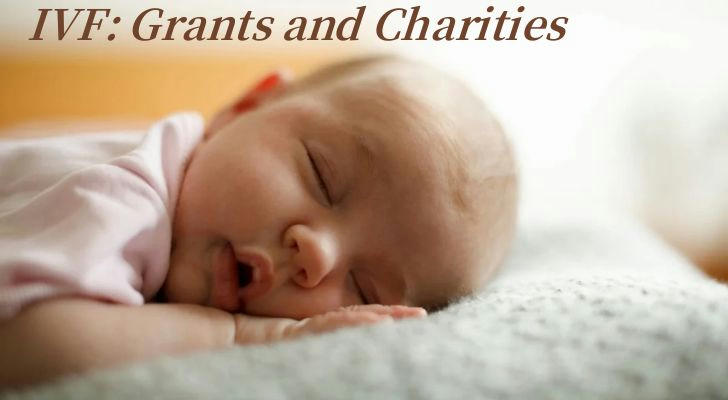IVF grants and support programs: helping families overcome fertility challenges
In the United States, an increasing number of couples are facing fertility challenges due to advancing age. In vitro fertilization (IVF) has become a crucial option for many who dream of starting a family. However, the high costs associated with IVF often seem insurmountable, with a single cycle costing anywhere from $12,000 to $20,000 or more, not including medications, genetic testing, or additional procedures. This article explores the challenges older couples face when undergoing IVF and how they can access financial support.

The Reality of IVF Treatment: Not Everyone Can Afford It
The average cost of a single IVF cycle in the United States ranges from $12,000 to $15,000, excluding additional expenses such as medications ($3,000 to $5,000), laboratory fees, and embryo freezing. A complete course of treatment, which may involve multiple cycles, can easily exceed $30,000. These costs can be prohibitive for many families.
Moreover, most private health insurance plans do not cover IVF treatments. Only a few states, such as Massachusetts, Illinois, and New York, have laws requiring insurers to reimburse some of the costs associated with assisted reproductive services. This means that many couples must bear the full financial burden themselves.
✨ Age Matters: The 35-Year Threshold
Data from the Centers for Disease Control and Prevention (CDC) shows that the success rates of IVF decline significantly with age. The following table illustrates the live birth rates per IVF cycle based on age:
| Age Group | Live Birth Rate per Cycle |
|---|---|
| Under 35 | Approximately 41% |
| 35–37 | Approximately 31% |
| 38–40 | Approximately 22% |
| Over 40 | Below 12% |
Organizations Offering IVF Grants and Support
Several charitable foundations and non-profit organizations across the United States are dedicated to making fertility treatments more accessible. These programs typically rely on donations and have limited funding available each year. The following are some of the projects that have helped many aspiring parents:
Baby Quest Foundation
This organization provides financial assistance to couples and individuals who cannot afford fertility treatments. Grants are awarded twice a year. Applicants must provide medical background information and financial details. Although not everyone qualifies, the foundation has helped dozens of families embark on their journey to parenthood.
The Cadence Foundation
Founded by a couple who experienced infertility themselves, this foundation offers support grants that can be used to cover the costs of IVF or adoption. The foundation is open to all types of families, including single individuals, same-sex couples, and married couples. Applications are accepted annually, and recipients are selected based on need, experience, and readiness for treatment.
Journey to Parenthood
This initiative aims to support individuals who are preparing for IVF but cannot afford the costs. In addition to financial assistance, they also provide emotional support and guidance throughout the process. Applicants are required to detail their fertility journey and financial needs.
The Gift of Parenthood
This non-profit organization holds several funding rounds each year. Applicants are encouraged to submit videos, personal stories, and medical documentation to support their applications. The selection committee looks for individuals who are actively engaged and have strong emotional and financial profiles.
American Fertility Association (AFA)
The AFA’s IVF grant program aims to provide partial financial assistance to couples undergoing IVF treatment. Their goal is to make fertility treatments more accessible to those in need.
Hope for Fertility Foundation
Founded by a couple who experienced IVF themselves, this foundation provides grants annually to couples facing infertility. Applications typically open in the spring and are reviewed by a panel of experts. The foundation aims to bring hope to couples who are emotionally and medically ready but need financial assistance for treatment.

Other Ways to Reduce IVF Costs
In addition to grants, there are other methods to manage the high costs of IVF:
Payment Plans
Many fertility clinics offer financing options that spread the costs over several months or years.
Crowdfunding
Some families turn to platforms like GoFundMe to share their stories and raise funds from friends, family, and even strangers.
Clinical Trials
Research studies sometimes offer reduced-cost treatment options for participants. These trials are often conducted at university hospitals or research centers.
Shared Risk Programs
Some clinics offer multi-cycle packages where patients pay a fixed fee for multiple IVF attempts. If the treatment is unsuccessful, they may receive a partial refund.
Conclusion
IVF technology offers hope to older couples struggling with fertility, but the high costs and complex treatment process present significant challenges. By selecting the right fertility clinic, understanding available financial support programs, and seeking emotional support, older couples can better navigate these challenges and realize their dreams of starting a family.
